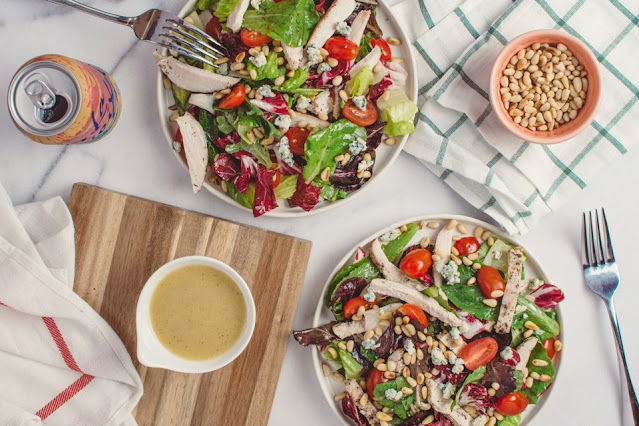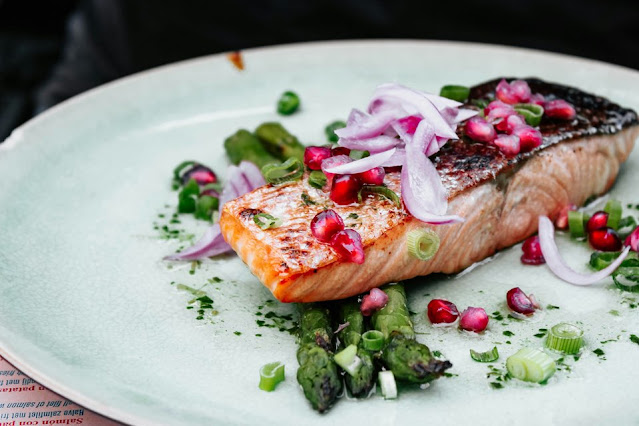The Mediterranean Diet: The Best Way to Enjoy Both Health and Flavor
The Mediterranean diet is a healthy eating pattern centered around fresh vegetables, fruits, whole grains, olive oil, and fish. Discover how this diet can improve heart health, support weight loss, reduce stress, and how you can easily adapt it using Korean ingredients. Daily meal examples and practical tips are also included.

What is the Mediterranean Diet?
The Mediterranean diet is based on the traditional eating habits of countries along the Mediterranean coast, such as Italy, Greece, and Spain. The main foods are fresh vegetables, fruits, whole grains, legumes, nuts, olive oil, and fish, while red meat, processed foods, and sugar are minimized.
Key Principles of the Mediterranean Diet
- Healthy fats: Focus on unsaturated fats like olive oil, nuts, and avocados.
- Plenty of vegetables and fruits: Eat a variety of colorful vegetables and antioxidant-rich fruits every day.
- Protein from fish and legumes: Choose fatty fish such as salmon, mackerel, and tuna, and plant-based proteins instead of red meat.
- Whole grains over refined carbs: Include brown rice, oats, quinoa, and whole wheat bread.
- Use herbs and spices: Add flavor with basil, oregano, rosemary, and other herbs instead of salt.
- Moderate wine: Enjoy a glass of red wine with meals (optional).

Health Benefits of the Mediterranean Diet
- Improves heart health and prevents cardiovascular disease
- Supports weight loss and healthy weight maintenance
- Promotes brain health and helps prevent dementia
- Reduces stress and improves mental well-being
- Prevents diabetes, inflammation, and chronic diseases
- Promotes longevity: Many long-lived populations live in the Mediterranean region
Example of a Daily Mediterranean Meal Plan
- Breakfast: Greek yogurt with blueberries and nuts, whole wheat toast with avocado and olive oil
- Lunch: Quinoa & lentil salad with grilled salmon, tomato, olive & mozzarella cheese salad
- Dinner: Chicken breast grilled with olive oil, roasted eggplant & zucchini, brown rice risotto with shrimp & garlic
- Snacks: Chickpea hummus with whole wheat crackers, a glass of red wine (optional)

Tips for Practicing the Mediterranean Diet
- Korean-style adaptation: Use brown rice, mixed grains, soybean paste soup, vegetable side dishes, grilled fish, and fresh greens.
- Eat slowly and enjoy your meals: Taking time to enjoy meals and conversation is important.
- Use herbs and spices generously: This helps reduce sodium intake.
FAQ
Q1. What is the Mediterranean diet?
A. It is a healthy eating pattern based on the traditional diets of Mediterranean countries, focusing on fresh vegetables, fruits, whole grains, olive oil, and fish.
Q2. Is it effective for weight loss?
A. Yes, it helps with natural weight loss and healthy weight maintenance.
Q3. How can I start?
A. Increase your intake of fresh vegetables and fruits, use olive oil as your main fat, and choose fish and legumes as protein sources.
Q4. Can I follow it with Korean food?
A. Yes, you can use brown rice, vegetable side dishes, grilled fish, and fresh greens to adapt the Mediterranean diet to Korean cuisine.
References
- Harvard Health: Mediterranean Diet Research
- Nutrition and Health Journal (2024)
- Domestic and international health blogs and news

Start Practicing the Mediterranean Diet Today
The Mediterranean diet is the best way to enjoy both health and flavor. You don't need special ingredients or complicated recipes—just start making small changes by focusing on fresh vegetables, whole grains, olive oil, and fish. These small changes will add up to a healthier life. Try the Mediterranean diet one meal at a time, and protect the health of you and your family.


